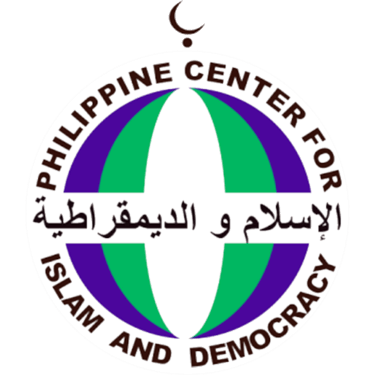
QUEZON CITY (MindaNews / 22 May) — Last Monday, the Office of the Presidential Adviser on Peace, Reconciliation and Unity (OPAPRU) held its Peace Partners’ Recognition Day 2022 at the Philippine International Convention Center (PICC) to thank individuals, NGOs, government agencies that have supported and helped achieve the goals of peace and security of the country.
OPAPRU chief, Secretary Carlito “Charlie” Galvez Jr., said: “Through the partnerships, we have established and nurtured over the years, we have implemented programs and projects that are uplifting the lives of our beneficiaries, particularly former combatant, their families, and communities”. Sec Charlie added that the vision of lasting peace and sustainable development has become more attainable because of steadfast support from its partners.
The partners recognized were former Ambassador Rafael Seguis, Defense Undersecretary Ceasar Yano, Ateneo de Manila University professor Jennifer Santiago-Oreta, Bangsamoro Transition Authority member of the parliament lawyer Jose Lorena, Acting Environment Secretary Jim Sampulna, Lanao del Sur Board Member Jamil Faisal Adiong, Ateneo de Davao University President, Fr. Joel Tabora, OPAPRU consultant for indigenous people lawyer Reuben Daya Lingating, OPAPRU consultant Maria Victoria Maglana, News and Information Bureau – Philippine News Agency Director Virginia R. Arcilla-Agtay, Moro Islamic Liberation Front chairperson and Bangsamoro Autonomous Region in Muslim Mindanao Chief Minister Ahod “Murad” Ebrahim, Moro National Liberation Front chair Nur Missuari, Sema-Jikiri faction chairperson Muslimin Sema, and late MNLF chair Yusop Jikiri (posthumous award).
OPAPRU also recognized and thanked national agencies and non-government organizations that were involved in the implementation of its peace programs: Department of Social Welfare and Development, Nonviolent Peace Force, Armed Forces of the Philippines Peace and Development Office, Philippine National Police-Peace Process and Development Center, and Sulu State College.
I was honored to have been included as a partner. In a conversation with Sec Charlie before the event started, he stressed the importance of continuing the work on peacebuilding and the peace process. He said that development is not possible without peace and peace is unattainable without development. My only caveat, Sec Charlie, is that it must be a just peace.
Speaking of successful peace processes, my guest on “She Talks Peace” shared her observations on the successes in Timor Leste, after the signing of the peace agreement which gave the Timorese independence. Khoo Ying Hooi has worked with the Timor-Leste Government and has written about the situation there.
Currently, she is the Head of the University of Malaya (UM) Research Group on Human Rights. She is also the Editor-in-Chief, Malaysian Journal of International Relations (MJIR), and a member of the Board of Editors of the Journal of Current Southeast Asian Affairs, Indonesia Law Review, Journal of Southeast Asian Human Rights, among other publications. She is the Secretary-General of the Society for the Promotion of Human Rights (PROHAM) and is on the Advisory Panel of the World Alliance for Citizen Participation (CIVICUS) Monitor. Ying Hooi is a Columnist, Sin Chew Daily.
We spoke about Timor Leste’s desire to join ASEAN. Ying Hooi noted that Timor Leste is more democratic than some ASEAN member states, with robust electoral processes. The member states of ASEAN have laws governing elections, with the exception of Brunei, which is a monarchy. But laws are not always followed to the letter. So many violations of human rights are tolerated in many areas, particularly in the last couple of years when COVID became a means for governments with authoritarian tendencies to become even more oppressive. Like what happened in Myanmar. Of the 10 member states, the countries most critical of the Myanmar Junta have been Malaysia, Indonesia and often supported by Singapore and the Philippines.
The previous Timor Leste administration abstained from a resolution in the United Nations General Assembly last year condemning the military regime in Myanmar. The decision drew ample criticism, including from José Ramos Horta, the country’s former president, who described Timor-Leste’s vote as “a vote of shame”. Ramos-Horta, former independence fighter and Nobel Peace Prize laureate, was sworn in as president of East Timor on May 20, ahead of celebrations marking the 20th anniversary of independence for Asia’s youngest country.
Ying Hooi is optimistic about developments in East Timor, in spite of its overwhelming problems with poverty and economic development. For one, political participation is robust, with special attention on women. Timor Leste is the only country in ASEAN that has a quota system supporting women.
In one of her commentaries, entitled “What Will it Take to Admit Timor Leste into ASEAN?”, Ying Hooi wrote: “We need to recognize that despite all the challenges in striking a balance between democracy and development in one of the poorest countries in the world as a post-conflict small state, Timor-Leste has shown its full commitment to ASEAN. It has carried out all the requirements set by the ASEAN in line with its Charter. Those who criticized Timor-Leste on the measures taken miss the point that, for a relatively young country (just 17 years old in 2019), this was not a simple political matter but an existential issue for Dili’s regional and international standing. Timor-Leste has been relentlessly seeking to lobby for its admission to ASEAN, in the face of numerous requirements being set by the grouping. To that end, Timor Leste deserves commendation.”
With Ramos-Horta back in power, Ying Hooi must be even more optimistic. Although she does have serious concerns. If you are interested to know what these concerns are, do tune in to “She Talks Peace” today.
Please Click, Play and Listen on Spotify:
https://spoti.fi/3wL3Nqx
Apple Podcasts:
https://apple.co/3G7mk4o
(MindaViews is the opinion section of MindaNews. Amina Rasul is the President of the Philippine Center for Islam and Democracy, an advocate for Mindanao and the Bangsamoro, peace, human rights, and democracy).
